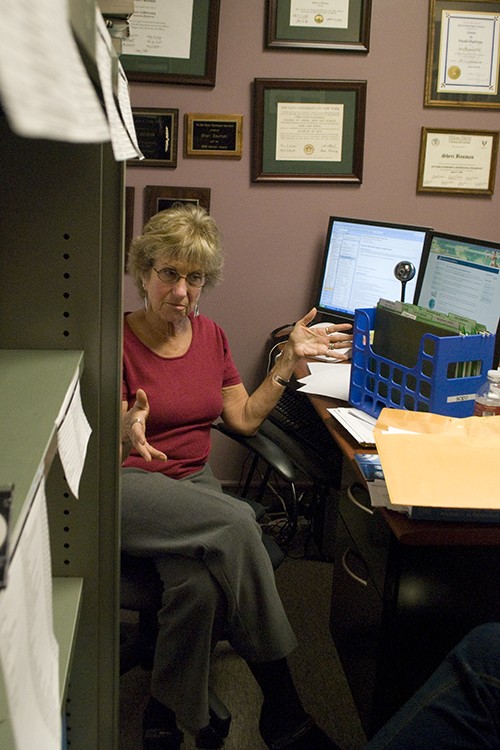Cyberbullies leave their mark all over the web, and one UA associate professor is out to make sure students know how to prevent it and what to do when it happens to them.
Inspired by being blindsided by a cyberbully, Sheri Bauman, associate professor for disabilities and psychoeducational studies, is creating a focus group for students to find out why the “”cyber-arena”” is flooded with bullies who can say it all without leaving their computer.
“”Why do you put it on the Internet when you can’t say it in person?”” asked Katie Parissenti, a political science sophomore. Parissenti said negative comments on social networking sites are very “”high school”” and “”clique-ish.”” She said one reason people might cyberbully is because face-to-face contact can be more awkward than doing it online.
Bauman was a victim of cyberbullying herself in 2000, while studying for her licensing exam to become a psychologist. She joined an online listserv where others prepping to take the exam shared notes and helped each other study. Bauman came across a woman on the listserv who mentioned studying in Colorado in one of her posts. Having lived in Colorado and studied at the same college as the woman, Bauman sent her an email. They exchanged a few emails in a brief and casual conversation about which professors were still at the university and their experience at the school.
A few weeks later, Bauman received an angry email from the woman saying she was going to contact the licensing board and make sure no one like her was ever licensed to practice.
“”I was shocked,”” Bauman said. “”Someone had masqueraded as me and said nasty, disgusting, sexual things to the woman in an email … They had damaged my reputation and potentially ruined my career.””
Bauman immediately contacted the listserv and explained her situation. After an investigation, the site’s manager was able to find the computer from which a user posed as Bauman. The man who owned the computer said he had been out of town and someone else must have logged on and written the disturbing emails. The site’s manager wrote a letter to the offended woman explaining the situation.
Bauman said she would have acted differently if she had the knowledge she does now.
“”I would have acted less powerless and contacted the police or filed a lawsuit.””
She recommends students save evidence and call the police if it happens to them.
Sgt. Juan Alvarez, spokesman for the University of Arizona Police Department, said cyberbullying crimes at the UA are usually committed through email or via text message.
“”We will make sure that the person is held responsible, and we conduct an investigation to see if the situation will involve jurisdiction,”” he said.
He added that whether or not UAPD takes action depends on the situation. UAPD works in collaboration with the Dean of Students Office and Campus Health Service, who often step in and help handle the case.
“”Like many devices, it isn’t the technology or the Internet that is the problem — it’s the use of it,”” Bauman said during a talk at the Student Union Memorial Center’s Tucson Room last Friday. “”I really value free speech, but it can sort of poison the atmosphere.””
Katie Selph, a creative writing senior, said social networking sites like Facebook have actually given her more security.
“”I don’t think I’ve ever had a problem with any creepy person myself, but it does happen,”” Selph said. “”It’s definitely a lot easier to control on Facebook. You can block people and they can’t contact you.””
Other websites allow you to create usernames where your personal information is not visible to others.
“”You can go online and be Donald Duck, you can be a dog, you can be whoever you want, and they can’t trace it … anonymity is a huge problem,”” Bauman said during the talk.
She is currently working to start a focus group to get a better understanding on what is causing this issue. After speaking with students from different racial, sexual, gender and social backgrounds, she hopes to create a survey to send out to the entire UA student body in order to gather a wider range of information.









